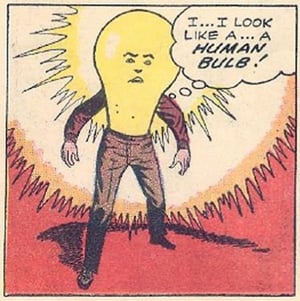Tangential note:
The -ster suffix was initially reserved for specifying that the person being referred to was a woman, as in “spinster.” After some time it was extended to words like “gangster” and “jokester”.
Well you’re just a regular factster, aren’t you!
I’m on my third listen-through of the History of English Podcast, and I notice something every time. Like how the origin of the phrase “going Dutch” for “paying one’s own way on a date” was derogatory against the Dutch by the English when there was the huge global commerce and colonization competition between the two. And that that’s just the currently best known one of many phrases “against” the Dutch – “in Dutch” meaning “in trouble,” usually in jail, is another, but there’s almost too many to count.
Now look what you’ve done.
I like the etymology of the word ‘nice.’
The ever-present “-ly” suffix that makes nouns and adjectives into adverbs comes from the Old English (and earlier) suffix “lic” (pronounced leek), which meant “like” (as in “similar to”).
Someone who is “friend-like” is friendly. Something that is done “proper-like” is done properly.
Fascinating. I wonder if the transition from foolish ignorance to agreeable friendliness had anything to do with increased civility of society, shifting from seeing the nice as targets to appreciating the kindness from their fellow man.
Bullshit. I don’t chew gum.
You will if the boss says you will.
Yer all right.

They’re not wrong.
Hmmm…this is the “edited for TV” version.





